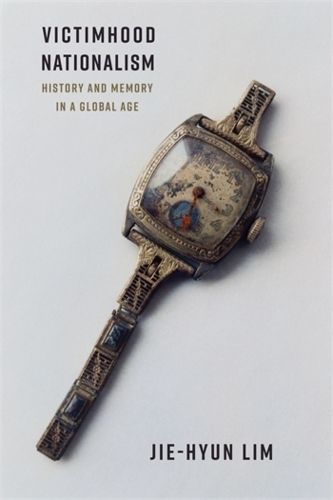Readings Newsletter
Become a Readings Member to make your shopping experience even easier.
Sign in or sign up for free!
You’re not far away from qualifying for FREE standard shipping within Australia
You’ve qualified for FREE standard shipping within Australia
The cart is loading…






Nationalism today depends on the perception of victimhood. The historical memory of past suffering endows nationalist movements with political legitimacy and a sense of moral superiority. Koreans recall Japanese colonial atrocities, while Japan commemorates the atomic bombings of Hiroshima and Nagasaki. Israel sanctifies the Holocaust and Poland trumpets the Nazi and Soviet occupations. Even Germany and Russia, perpetrators of historical crimes, today cast themselves as victims by pointing to national suffering.
In this theoretically sophisticated and empirically rich book, Jie-Hyun Lim offers a new way to understand nationalism and its political instrumentalization of suffering, developing the concept of "victimhood nationalism" and exploring it in a range of global settings. He examines relations among Poland, Germany, Israel, Korea, and Japan, focusing on how memories of colonialism, the Holocaust, and Stalinist terror have converged and intertwined in transnational spaces. With an emphasis on memory formation, Lim scrutinizes how perpetrators in Germany and Japan transformed themselves into victims, as well as how nationalists in Poland, Korea, and Israel portray themselves as hereditary victims in order to rebut external criticism. He considers the construction of nations as victims and perpetrators, tracing the interaction of history and memory. Ultimately, the book contends, challenging victimhood nationalism is necessary to overcome the endless competition over national suffering and instead promote reconciliation, mutual understanding, and transnational solidarity.
$9.00 standard shipping within Australia
FREE standard shipping within Australia for orders over $100.00
Express & International shipping calculated at checkout
Nationalism today depends on the perception of victimhood. The historical memory of past suffering endows nationalist movements with political legitimacy and a sense of moral superiority. Koreans recall Japanese colonial atrocities, while Japan commemorates the atomic bombings of Hiroshima and Nagasaki. Israel sanctifies the Holocaust and Poland trumpets the Nazi and Soviet occupations. Even Germany and Russia, perpetrators of historical crimes, today cast themselves as victims by pointing to national suffering.
In this theoretically sophisticated and empirically rich book, Jie-Hyun Lim offers a new way to understand nationalism and its political instrumentalization of suffering, developing the concept of "victimhood nationalism" and exploring it in a range of global settings. He examines relations among Poland, Germany, Israel, Korea, and Japan, focusing on how memories of colonialism, the Holocaust, and Stalinist terror have converged and intertwined in transnational spaces. With an emphasis on memory formation, Lim scrutinizes how perpetrators in Germany and Japan transformed themselves into victims, as well as how nationalists in Poland, Korea, and Israel portray themselves as hereditary victims in order to rebut external criticism. He considers the construction of nations as victims and perpetrators, tracing the interaction of history and memory. Ultimately, the book contends, challenging victimhood nationalism is necessary to overcome the endless competition over national suffering and instead promote reconciliation, mutual understanding, and transnational solidarity.